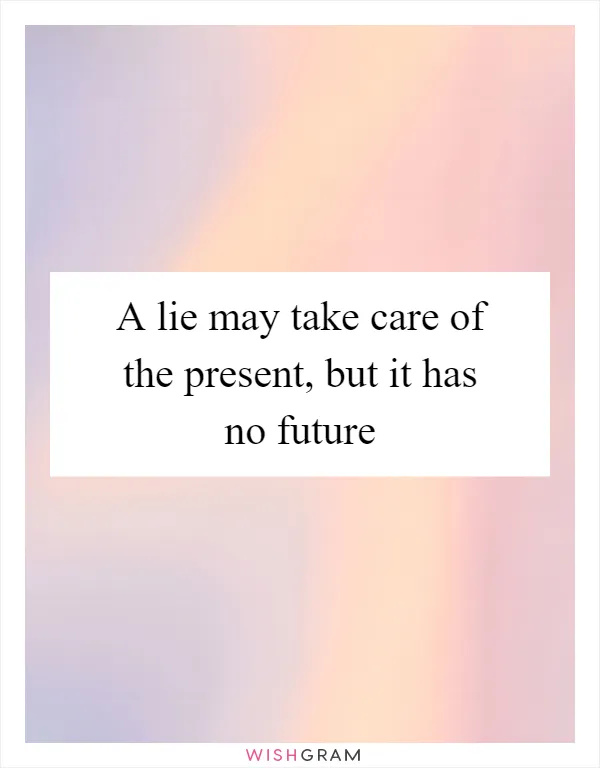A lie may take care of the present, but it has no future
Lying may seem like a quick fix for a current problem, but it ultimately leads to a dead end. When we choose to deceive others, we may temporarily avoid facing the consequences or difficulties of the truth. However, this dishonesty will catch up with us sooner or later, leaving us with a bleak future.
A lie can be compared to a Band-Aid that covers a wound but fails to heal it. It may provide temporary relief, but it does not address the underlying issue. Similarly, when we lie, we may temporarily escape a difficult situation or avoid hurting someone's feelings. However, the truth remains unchanged, and sooner or later, it will resurface, causing even greater harm.
Honesty, on the other hand, builds trust and fosters genuine connections. When we choose to be truthful, we establish a solid foundation for our relationships. People appreciate honesty, even if it means facing uncomfortable truths. By being honest, we show respect for others and ourselves, and we create an environment where open communication can thrive.
Lies often require more lies to sustain them. Once we start down the path of deception, it becomes increasingly difficult to keep track of the falsehoods we've spun. This web of lies can quickly become overwhelming and exhausting. We may find ourselves constantly on edge, fearing that our lies will be exposed. This constant anxiety and fear of being caught can consume our thoughts and drain our energy.
Moreover, lies erode our self-esteem and integrity. When we lie, we compromise our values and lose sight of who we truly are. We become trapped in a cycle of deceit, distancing ourselves from our authentic selves. This internal conflict can lead to feelings of guilt, shame, and a loss of self-respect.
